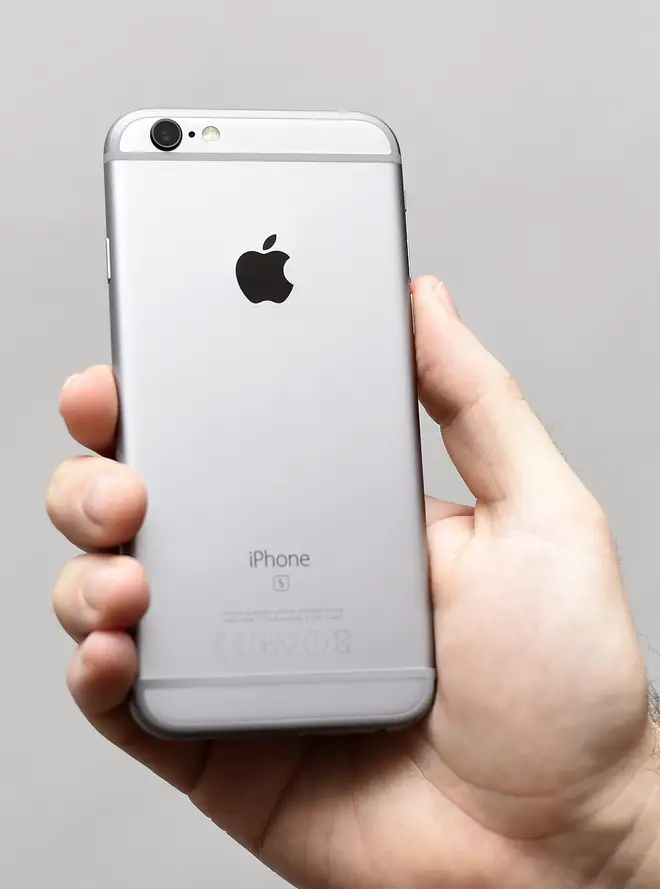
Nick Abbot 10pm - 1am
1 November 2023, 16:54

Justin Gutmann has accused the tech giant of slowing down the performance of iPhone handsets by hiding a power management tool.
A consumer champion’s £853 million claim against Apple linked to an incident in 2017 around a power management tool on older iPhone models has been granted the go-ahead by a UK court.
Justin Gutmann has accused the technology giant of slowing down the performance of iPhone handsets – a process known as “throttling” – by hiding a power management tool in software updates to combat performance issues and stop older devices from shutting down suddenly.
Mr Gutmann filed his “batterygate” claim with the Competition Appeal Tribunal, seeking damages for up to 25 million UK owners of a range of older iPhone models.
On Wednesday, the tribunal decided the claim can proceed to a full trial, finding that “the requirements of a CPO (collective proceedings order) are met in this case, subject to the resolution of the terms of funding to which we have referred above”.
The “terms of funding” refer to Mr Gutmann’s funding arrangements, which Mr Gutmann said he is confident are now compliant and will shortly be confirmed as such by the tribunal.
The claim alleges that Apple misled users over the incident by pushing them to download software updates it said would improve the performance of some devices but, in fact, slowed them down.
It relates to the introduction of a power management tool released in a software update to iPhone users in January 2017, which was rolled out to slow down older iPhone models with ageing batteries, which may have struggled to run the latest iOS software, in order to prevent abrupt device shutdowns.
Mr Gutmann said information about this tool was not included in the software update download description at the time and did not make it clear it would slow a user’s device.
He claims Apple introduced the tool to disguise the fact iPhone batteries were unable to cope with new iOS processing demands and that, rather than recall products or replace batteries, the company instead pushed users to download the software updates.
The legal claim says Apple did add a mention of the tool to the release notes for the update on its website at a later date but says the company failed to make clear that it would slow down older iPhones.
In late 2017, after some users noticed performance issues, Apple apologised for its handling of the issue and said it would replace batteries for a heavily reduced rate for a limited time and also introduce a feature to allow users t oturn off the power management tool.
At the time, the company said it has never, and would never, do anything to intentionally shorten the life of a product, and Apple chief executive Tim Cook publicly apologised over the incident, saying the company never tried to mislead anyone over the tool.
But Mr Gutmann claims Apple failed to sufficiently publicise its battery replacement service pricing of £25 plus return shipping and that the company abused its dominant market position.
The claim relates to the iPhone 6, 6 Plus, 6S, 6S Plus, SE, 7, and 7 Plus models.
It seeks compensation for each model owned and is an opt-out claim, meaning customers will not need to actively join the case to seek damages.
Mr Gutmann said: “I’m heartened that the Competition Appeal Tribunal has given the nod for our groundbreaking claim to proceed to a full trial. This paves the way for millions of consumers, who were left paying for battery replacements or new phone models, to receive the compensation they deserve.”
An Apple spokesperson said: “We have never, and would never, do anything to intentionally shorten the life of any Apple product, or degrade the user experience to drive customer upgrades.
“Our goal has always been to create products that our customers love, and making iPhones last as long as possible is an important part of that.”